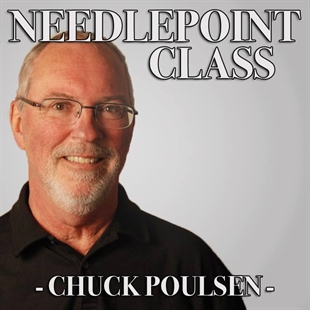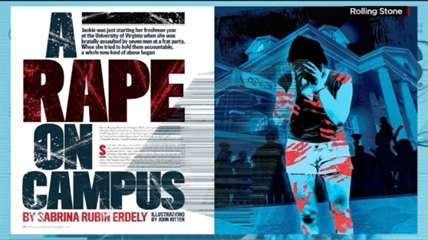
Image Credit: Chuck Poulsen
April 09, 2015 - 8:10 AM
Without taking too big a leap of imagination, I’m going to pretend to know what the people at Rolling Stone Magazine were thinking when they published an exclusive story about an alleged seven-man rape during a party at the University Of Virginia’s Phi Kappa Psi fraternity.
They were thinking: “This is a terrible story so it’s a great story. It’s a scoop. The competition will be livid with envy. We will win great respect and esteem, plus a bunch of journalism awards and the cash prizes that go with them.”
They were also only slightly subconsciously thinking: “I hope it’s true! I hope it’s true! I don’t want to know if it isn’t true.”
And perhaps one more thought from the news office: “This is a sexual assault. We need to put on our kid gloves for the victim. Ask no question that might re-traumatize. Be a believer.”
That’s wishful thinking for you. It can trump facts, common sense, experience and all the established rules of the profession. We’ve all been guilty of it occasionally.
That’s not to excuse Rolling Stone. Whenever a mistake is made in the media, people say it’s inexcusable, even though it’s usually just a garden variety mental glitch.
But the Rolling Stone article really is inexcusable.
Rolling Stone’s publisher asked for an independent review of the story after numerous news outlets found flaws with it, while at about the same time police reported they couldn’t discover any evidence of a crime.

Image Credit: Rolling Stone
That review by the Columbia University School of Journalism blew the Rolling Stone’s piece to ethical smithereens.
Long story short: Facts weren’t checked, alleged perpetrators weren’t found and asked to respond, significant witnesses weren’t interviewed, and information was withheld from the school and fraternity, which obstructed both of them from doing their own investigations and presenting an informed reply.
For instance, if the fraternity had had more information earlier, it would have been able to explain that there was no social function the night of the alleged attack and that none of its members worked at an aquatic centre, where “not-her-real name” Jackie (the complainant and the fabulist), said she worked with “not-his-real-name” Drew (the main accused).
Pseudonyms were used throughout. Not surprising in a story that fudged far more than it purportedly exposed in its journey of faith.
Phi Kappa Psi, citing “the reckless nature in which Rolling Stone researched and failed to verify facts,” plans to sue for defamation, a claim, by the way, that is not as easily pursued in U.S. courts compared with those in Canada.
Rolling Stone managing editor Will Dana and reporter Sabrina Rubin Erdely both apologised. Curiously, neither will be fired and neither will be ordered to repeat Journalism 101.
Canada experienced its own version of kindergarten journalism in the three bogus accusations against former Vancouver Olympics CEO John Furlong. It was claimed that Furlong abused mostly natives while a volunteer teacher in Burns Lake and Prince George from 1969 to the early 1970s.
The weekly Georgia Strait in Vancouver put on its own kid gloves for the accusers and broke the story, which now has a double meaning after the allegations were all shattered.
The last of three bogus lawsuits by the “victims” against Furlong was recently withdrawn for the same reason the Rolling Stone article was eventually discredited: No proof, no evidence. No crime.
A police investigation had already exonerated Furlong.
Here’s a tidbit the initial reporting missed: One of the complainants made similar abuse allegations related to another school and received $138,000 in compensation. The man has 35 criminal convictions for break and enters, fraud, theft, forgery and other crimes.
Furlong suffered a loss of reputation, loss of income from lucrative speaking engagements and suffered God knows how many episodes of anxiety when torment stabs the heart at 3 a.m. in your dark bedroom.
What happens to the accusers? Nothing. No criminal charges. No defamation suit because the defendants have no money to claim and Furlong just wants an end to it all. And no loss to the accusers of a good reputation because they didn’t have one to start with.
As for the media, it’s been so fragmented by the Internet that no one is making the money they used to. If there is something as too much competition, this is it.
Stories get reported too fast, often recklessly and on the cheap with drastically reduced newsroom staffing levels. At the same time, the public is demanding more and more of it, 24/7 worth.
None of this is a good news story.
— Chuck Poulsen can be contacted at PC30@Shaw.ca. To contact the editor, email mjones@infonews.ca or call 250-718-2724.
— Factual corrections were made to this column at 5:53 p.m. April 9. A Georgia Strait story on Mr. Furlong alleged physical and mental abuse. Incorrect information appeared here earlier.
News from © iNFOnews, 2015